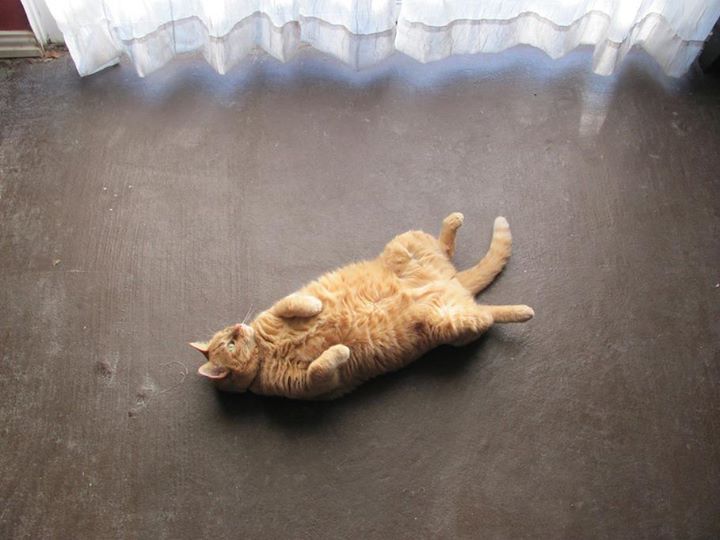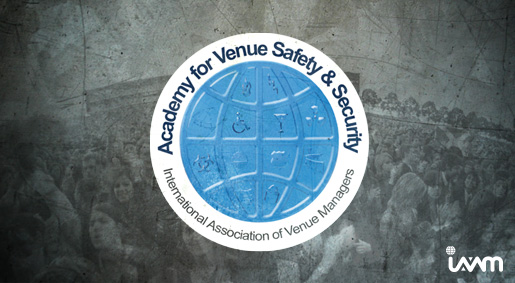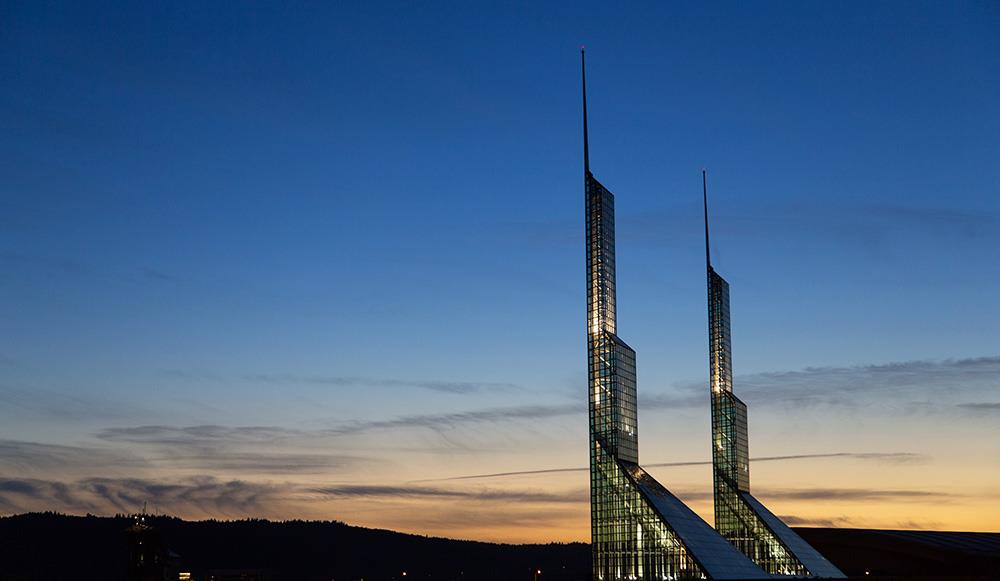The Internet Cat Video Festival is as Cool as It Sounds
Let’s talk about cats on the Internet. It’s a day that ends in “y” so why not.
In 2012, the world’s first Internet Cat Video Festival was held at the Walker Art Center in Minneapolis, Minn. More than 10,000 people gathered to watch videos that are easily found for free online.
“In fact, it was this desire for community engagement that led to the event’s inception as part of a program at the Walker Art Center called Open Field,” Anna Weltner wrote in New Times. “Curated by [Scott] Stulen, the program turns the Walker’s lawn into a community gathering space over the summer, with opportunities to share skills, enjoy music and poetry, participate in activities hosted by artists in residence, and simply hang out. One of the activities Stulen and one of his interns thought of was a crowd-sourced festival of cat videos. An announcement for the event, Stulen said, went viral in two hours. He was shocked when, instead of the predicted 100-or-so viewers, thousands of cat video enthusiasts turned up on the Walker’s lawn.”
Perhaps you already knew about this festival; however, I’m just now hearing about it and I’m interested. The first event was so successful that it now goes on tour, visiting venues in several U.S. cities.
“The current Internet Cat Video Festival tour includes 20 cities, and Stulen has done his best to tailor each event to the city it’s in,” Weltner wrote. “This often includes work with local animal nonprofits, and invitations to local artists to discuss related projects. Ironic as it sounds, the goal of the Internet Cat Video Festival is to foster community.
“‘I think there’s really something different about content we experience online when you take it into a social setting,'” Weltner continues, quoting Stulen. “‘There’s something that people really respond to about watching this stuff together.'”
This a great example of why live experiences will never die. Sure, there’s the fear that people would rather stay at home than attend a live event, and yes, you’re going to have homebodies that want that. But for the most part, people want to be around other people, whether to laugh or cry or cheer, because we’re social creatures. By attending a live event, we meet others that are similar to ourselves, liking the same things we like. By attending a live event, we reassure ourselves that we’re not alone.
The Internet Cat Video Festival stops in Austin, Minneapolis, Oakland, and Portland (home to this year’s VenueConnect) in 2014. Go for the cats. Stay for the people.
(If you’re curious, that is one of my cats, Sailor, in the photo, taken by T. Cole Rachel.)
A Warm Welcome to Our Newest IAVM Members
Please welcome our newest members who joined IAVM in November and December—a total of 212 new members, with 183 members joining in December. Our network of professionals is growing and we are reaching record numbers. Thank you for being a part of the association!
Russ Simons on the Importance of Safety & Security Training
The Academy for Venue Safety & Security (AVSS) will take place February 23-27 in Dallas, and it offers professionals in the venue industry intensive training in security planning and life safety management. We recently spoke with Russ Simons—chief listening officer and managing partner at Venue Solutions Group—a safety and security expert and former teacher at the academy to learn more about the training and why it’s important for your career in the industry.
When it comes to venue safety, do venue managers need AVSS even if their venue already has a preparedness plan in place?
Venue managers absolutely need to continue take advantage of AVSS. Venue safety, security, and risk management is not static. It is a constantly evolving environment with rapidly changing conditions. There are several benefits, which include a comprehensive understanding of what has happened before and how to look forward to identify and prepare for what is coming next. In addition, the benefit of the network of AVSS instructors and attendees create a vehicle to get information and support going forward.
What is the most surprising thing you see venues doing or not doing when it comes to keeping guests safe?
Complacency! In today’s world, I cannot understand how facility managers and organizations can justify becoming complacent in the areas of venue safety, security, and risk management. The concept of “it cannot happen to me” has a tendency to creep into an organization’s culture. To put this into a sports perspective, we need to play like we are behind, play scared, and prepare every day as if it will happen. There is a direct benefit to this kind of thinking—when you prepare in this manner, then you and your staff will be prepared for anything that occurs.
What AVSS curriculum segment is your specialty?
I no longer teach at AVSS regularly. When I return from time to time, I focus on bringing it all together. This would be a very direct presentation on how what the class has learned represents the challenges that their counterparts in the venue industry face every day. In addition, when I can I like to focus on codes. A great many people in our industry are not aware of their code responsibilities and how important it is to manage and operate within the rules and obligations that are set out in national, state, and local regulations.
What does your venue team use every day that comes directly from your AVSS experience?
I no longer manage a facility on a day-to-day basis; however, I work in a different facility type most every day. This gives me great perspective on what the different facilities do. I can say without reservation that the information and experience gained at AVSS is important for every facility type and is useful every day.
What is one of your most interesting stories or incidents from your venue experience that is safety related, and how did you handle it?
Fortunately or unfortunately, I have had almost every bad thing happen to me as a facility manager. In an effort to offer something helpful, I learned early on that when someone is hurt and injured the natural human reaction is for people to gather around and look. I had a stagehand fall while the lights were still up in full view of the crowd. In an effort to protect the individual, I created a staff cordon around the injured individual facing outward. I was in a facility recently where a person was injured on a public concourse during an event, and there were several“well intentioned” staff members responding but no one took control, managed the concourse traffic flow around the incident, or protected the view to the inured party. This is something that can be emphasized in supervisor and staff training.
Register today for AVSS, and learn from some of the best safety and security experts, like Russ, in the venue industry.
What Are the Top 5 Cities for Green Meetings?
The GreenBiz Group recently released its listing of the top 10 cities for green meetings in 2014. Let’s take a look the top five and which venues were highlighted.
1. Denver
“In January, Denver’s Colorado Convention Center led the charge when it earned Level One certification for a meeting facility. This requires, among other measures, a written environmental policy; a minimum waste diversion rate of 30 percent over the course of a year (the center diverts 57 percent annually) or 45 percent for a particular event; and at least 20 percent of building fixtures operating at high efficiency.”
2. Las Vegas
“…the Sands Expo and Congress Center at The Venetian and The Palazzo became the first and only in the world to garner next-tier Level Two ASTM/APEX certification. The LEED Gold Sands and Venetian and LEED Silver Palazzo laid down the sustainability gauntlet in 2011, when the Sands 360° Meetings Program—a holistic approach to providing environmentally sound choices for events—was launched.”
3. Chicago
“Thanks to ambitious environmental initiatives, [McCormick Place] has already reduced energy consumption by 1.6 million kWh and increased its annual waste-diversion rate by 10 percent over the past few years.”
4. Orlando
“…Orlando’s Orange County Convention Center is the second-largest venue with ASTM/APEX certification. In addition to LED lighting and HVAC systems, environmental measures at the LEED Gold venue include Green Seal-certified cleaning products, irrigation systems that rely on reclaimed water, and a solar PV system.”
5. Portland (home to this year’s VenueConnect!)
“The city’s Oregon Convention Center, which was the first to nab LEED certification for existing buildings back in 2004, also announced last April that it would be investing funds to boost its LEED status from Silver to Gold.”
Please visit GreenBiz.com for these rest of the list, and we hope to see you in Portland in July for VenueConnect.
The U.K. Celebrates Independent Venue Week
Before the Black Crowes can play in Busch Stadium, before Muse performs in Manchester Arena, before Radiohead strikes a chord in the Riverbend Music Center, they all make their way through small venues. To help celebrate the role these places play in the lives of performers, 18 small venues around the U.K. will participate in Independent Venue Week, Jan. 28 – Feb. 2.
“Independent venues sit at the heart of their local community, providing a vital lifeline to upcoming artists early in their careers whilst bringing together those fans who are passionate about live music,” the organization’s website said. “With more and more small to medium sized venues continuing to close around the country, Independent Venue Week supports those venues that play such a significant role to musicians and fans alike. We want to celebrate the venues, and the people that run them, that have played host to some of the biggest names in music when they were no better known than the bands that are playing there now.”
Radiohead’s Colin Greenwood is the initiative’s official ambassador.
“I’m proud to be involved in the celebration and promotion of local gigs, which gave us some of the best times in our musical life—The Joiners, King Tuts, Jericho Oxford—just to name three brilliant venues that are still putting on top shows today,” he said. “They’re all crucial for the musical development of the U.K., because they provide local artists with places to hone their show skills and a window to other musical worlds when a tour hits town.”
Visit the Independent Venue Week website for more information and to buy tickets. And if you’re not in the U.K., consider seeing a show at a small venue. You may just see the next superstar starting out.
(photo credit: hidden shine via photopin cc)
Do you want to receive a Front Row News weekly digest?
Categories
- Allied (861)
- Architecture (147)
- Arenas (750)
- Career (897)
- Convention Centers (897)
- Education (623)
- Events (1,544)
- Food & Beverage (193)
- Foundation (113)
- Guest Experience (1,497)
- Industry News (2,270)
- Leadership (1,888)
- Marketing (150)
- Membership (2,001)
- Music (213)
- Performing Arts Centers (456)
- Professional Development (409)
- Research (128)
- Safety & Security (442)
- Sports (764)
- Stadiums (611)
- Student (159)
- Technology (516)
- Ticketing (92)
- Touring (82)
- Trends (365)
- Uncategorized (668)
- Universities (218)
- Video (25)
- Young Professional (198)
Twitter Feed
- Twitter feed loading
Recent Posts
- Where Are They Now? – 30|UNDER|30 Class of 2020’s Zakiya Smith-Dore, CVP
- Kerry Painter to Receive IAVM’s Convention Center Lifetime Achievement Award
- IAVM Foundation Announces the 30|UNDER|30 Class of 2025!
- Where Are They Now: 30|UNDER|30 Class of 2019’s Trent Gray
- Kevin Bruder, CVE, Remembered as Fair and Balanced, Inspiring but Unwavering
Categories
- Allied
- Architecture
- Arenas
- Career
- Convention Centers
- Education
- Events
- Food & Beverage
- Foundation
- Guest Experience
- Industry News
- Leadership
- Marketing
- Membership
- Music
- Performing Arts Centers
- Professional Development
- Research
- Safety & Security
- Sports
- Stadiums
- Student
- Technology
- Ticketing
- Touring
- Trends
- Uncategorized
- Universities
- Video
- Young Professional
Archives
- June 2025
- May 2025
- April 2025
- March 2025
- February 2025
- January 2025
- December 2024
- November 2024
- October 2024
- September 2024
- August 2024
- July 2024
- June 2024
- May 2024
- April 2024
- March 2024
- February 2024
- January 2024
- December 2023
- November 2023
- October 2023
- September 2023
- August 2023
- July 2023
- June 2023
- May 2023
- April 2023
- March 2023
- February 2023
- January 2023
- December 2022
- November 2022
- October 2022
- September 2022
- August 2022
- July 2022
- June 2022
- May 2022
- April 2022
- March 2022
- February 2022
- January 2022
- December 2021
- November 2021
- October 2021
- September 2021
- August 2021
- July 2021
- June 2021
- May 2021
- April 2021
- March 2021
- February 2021
- January 2021
- December 2020
- November 2020
- October 2020
- September 2020
- August 2020
- July 2020
- June 2020
- May 2020
- April 2020
- March 2020
- February 2020
- January 2020
- December 2019
- November 2019
- October 2019
- September 2019
- August 2019
- July 2019
- June 2019
- May 2019
- April 2019
- March 2019
- February 2019
- January 2019
- December 2018
- November 2018
- October 2018
- September 2018
- August 2018
- July 2018
- June 2018
- May 2018
- April 2018
- March 2018
- February 2018
- January 2018
- December 2017
- November 2017
- October 2017
- September 2017
- August 2017
- July 2017
- June 2017
- May 2017
- April 2017
- March 2017
- February 2017
- January 2017
- December 2016
- November 2016
- October 2016
- September 2016
- August 2016
- July 2016
- June 2016
- May 2016
- April 2016
- March 2016
- February 2016
- January 2016
- December 2015
- November 2015
- October 2015
- September 2015
- August 2015
- July 2015
- June 2015
- May 2015
- April 2015
- March 2015
- February 2015
- January 2015
- December 2014
- November 2014
- October 2014
- September 2014
- August 2014
- July 2014
- June 2014
- May 2014
- April 2014
- March 2014
- February 2014
- January 2014
- December 2013
- November 2013
- October 2013
- September 2013
- August 2013
- July 2013
- June 2013
- May 2013
- April 2013
- March 2013
- February 2013
- January 2013
- May 2012
- March 2012
- December 2011
- November 2011
- October 2011
Recent Comments
- Frank Bradshaw, Ph.D., CVE on John Meyer, CVE, a Tireless Advocate of Certification for Venue Professionals, Has Died
- Neil Sulkes on Hilary Hartung, Friend to Many in Venue Marketing, Has Left Us
- Jason Parker, CVE on The Devastation of Hurricane Helene and How We Can Support One Another
- Larry Perkins on Touhey Testifies Against Speculative Ticketing Before Congressional Subcommittee
- Peter Secord on Major Players for Planned Elkhart Amphitheater Were in the Mix at VenueConnect





